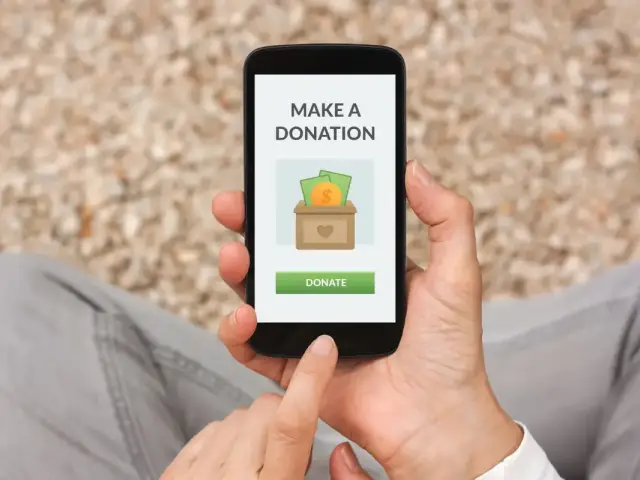There are many reasons to be a giving, charitable person. Giving to others helps us cement relationships, elicit gratitude, and connect communities. It can also make us feel happier and healthier, both mentally and physically.
Still, that doesn’t mean giving is always easy. For example, if you suffer from depression, you may find it too hard to get up in the morning, let alone help others. If you prefer to self-isolate when depressed, a stronger sense of connection may not seem appealing.
But new research out of Shenzhen and Peking Universities finds there may be a clever way to get around these potential roadblocks. In the study, researchers randomly assigned hundreds of young, depressed adults (with a score of 16 or higher on the CES-Depression scale) to either make daily micro-donations for two months or to be on a waiting list. Participants were first told that giving small donations helps improve society; then, they were invited to donate at least one cent per day for the next two months to any charity listed on a Chinese donation platform. Each day, participants reported what they gave and received a reminder in the evening if they hadn’t donated yet, to help increase participation.
X

Before and every week during those two months, all participants (including those on the waiting list) filled out questionnaires that measured their levels of depressive symptoms: depressed feelings, lack of joy, somatic complaints (like stomach pain), lethargy, and interpersonal problems, as well as how often they felt various positive and negative feelings.
After analyzing the results, the researchers found that people who donated daily, even as little as one cent a day, felt significantly more positive overall in comparison to people on the waitlist. This, in turn, seemed to explain why their symptoms of depression also decreased each week and over the whole length of the donation period.
In other words, making donations, even small ones, helps improve mood. And, since social connection wasn’t necessary for deriving benefit, it suggests donating could help depressed people who might otherwise resist practicing kindness toward others.
“Our finding shows a simple and cheap way to help reduce depressive symptoms, highlighting how important it is to do good things for others for our Mental health,” says Jinting Liu, one of the study coauthors.
Liu suggests that this could be due to how you can experience the “warm glow” of giving even when you give to people you don’t know or to causes you care about. The study’s finding around increased positivity driving the decrease in depressive symptoms supports that theory.
It could also be that if you’re prone to depression, focusing on others for a while gives you a break from ruminating on yourself and your perceived flaws, something many depressive people find hard to stop. It’s also possible that being giving makes you feel better about yourself—seeing yourself as more effective, perhaps—and that interrupts the negative self-talk common to depressives.
Interestingly, although people who gave more generously felt a bit happier and less depressed than those who gave less, the difference was not big enough to be significant. This means that even people with low means can make use of this simple activity.
“Just doing something nice for others is great,” says Liu. “The amount of money isn’t the key part; it’s really about the kindness behind it.”
Though these findings are intriguing, it doesn’t mean that making small donations is the key to treating depression, necessarily. There are many things that can help alleviate depression, says Liu, including changing distorted thinking through techniques like cognitive behavioral therapy or working to improve your relationships. A diagnosis of depression may require medication or working with a trained therapist, depending on the severity.
Still, it’s intriguing that such a simple task can move the needle on depression, and it mirrors results from some past research. For example, a 2013 study found that people who spent money on others were happier than those who spent it on themselves, no matter their culture or individual wealth, suggesting a broad benefit to giving. In addition, an experimental study from 2022 found that people with moderate symptoms of depression who were randomly assigned to perform acts of kindness experienced lower anxiety and depression symptoms and felt more connected to others, showing, again, how powerful giving can be.
Not only does giving help the world, it may have the side benefit of being good for you, says Liu: “One Chinese cent is something almost everyone can afford, meaning everyone has the potential to help others and find personal fulfillment.”













